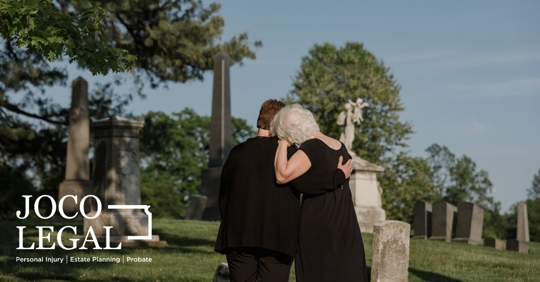Losing a loved one due to someone else’s negligence is a tragedy no family should have to face. When such a loss occurs, navigating the emotions, responsibilities, and legal complexities that follow can feel overwhelming. If you are a Kansas resident seeking answers about wrongful death claims, here are crucial details and actionable steps. This can help you focus on healing while addressing the legal avenues available.
What Is a Wrongful Death Claim?
A wrongful death claim is a legal action filed when someone’s death is caused by the wrongful act, neglect, or default of another party. These claims allow surviving family members to pursue compensation for losses resulting from the death of their loved one.
While no amount of financial compensation can fill the void left behind, pursuing a wrongful death claim can provide essential financial support, hold the responsible party accountable, and offer a sense of justice for the family.
Who Can File a Wrongful Death Claim in Kansas?
Kansas law allows certain individuals to file wrongful death claims. These typically include the spouse, children, or parents of the deceased. If none of these relatives exist, other dependents or heirs may have the right to bring forth a claim.
It’s important to note that Kansas law prioritizes immediate family members in wrongful death cases. If you’re unsure whether you’re eligible to file a claim, we encourage you to consult with a knowledgeable attorney who can guide you through the process.
What Damages Are Recoverable in a Kansas Wrongful Death Claim?
Kansas law permits surviving family members to seek various types of damages in wrongful death cases, including but not limited to:
- Economic Damages
- Medical expenses incurred before death
- Funeral and burial costs
- Loss of future income and financial support
- Non-Economic Damages
- Emotional pain and suffering
- Loss of companionship, care, and guidance
- Loss of the decedent’s services in the household
The Deadline for Filing a Wrongful Death Claim in Kansas
Kansas imposes a time limit, known as the statute of limitations, for filing a wrongful death claim. You generally have two years from the date of your loved one’s passing to take legal action.
Failing to file within this time frame could result in losing your rights to seek compensation. Because of this strict deadline, we recommend seeking legal counsel sooner rather than later to ensure that your case is filed promptly and appropriately.
What Must Be Proven in a Wrongful Death Claim?
To succeed in a wrongful death claim, you must establish specific elements to prove the responsible party’s liability. These typically include the following:
- Duty of Care: Demonstrating that the defendant had a duty to act reasonably and prevent harm (e.g., a driver following traffic laws).
- Breach of Duty: Showing that the defendant failed to fulfill this duty through negligence or misconduct.
- Causation: Proving that this breach of duty directly caused your loved one’s death.
- Damages: Evidence of the financial and non-financial losses your family has suffered due to the death.
Working with an experienced attorney ensures that these elements are thoroughly investigated and presented, giving your claim the best chance of success.
Get Help From Overland Park Wrongful Death Lawyers
If you’ve lost a loved one due to someone else’s actions or negligence, know that you don’t have to face this process alone. Seeking justice is not just about compensation but also about honoring your loved one’s memory and holding wrongdoers accountable.
At Joco Legal, we understand the emotional toll these cases take on families. We are here not only to provide legal support, but also to offer the compassion and care you deserve during such a difficult time. Our experienced attorneys are here to listen, provide guidance, and fight for the justice your family deserves. We take pride in building trust with our clients, offering clarity at every step, and empowering you with the information you need to make decisions.
We're here for you when you're ready. Contact us at (913) 423-5218 for a free consultation and learn how we can support you with compassion and diligence.

